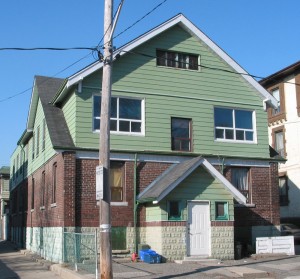News Release
December 7, 2017
City of Toronto regulates short-term rentals
Today, Toronto City Council has adopted recommendations to create a new bylaw for short-term rental regulations in the City of Toronto.
The new regulations will allow a property owner or tenant to participate as an operator (host) of a short-term rental in their principal residence, where they may share up to three bedrooms, or rent their entire residence on short-term durations but for no more than a total of 180 days a year. Short term rentals are rentals that are offered in periods of 28 consecutive days or less, and are typically facilitated through short-term rental companies (platforms) such as Airbnb.
“These regulations do the right thing in the right way. They strike a balance that embraces new technology and allows short-term rentals while protecting communities," said Mayor John Tory. "I’m proud City Council has found a way to regulate short-term rentals in a way that will keep housing affordable.”
The new regulations will take effect June 1, 2018. City staff will create an online registration system for short-term rental operators and will meet with short-term rental platform companies to provide guidance on the new regulations.
Homeowners and tenants who wish to share their principal residence and become a short-term rental operator will be required to register with the City through a new online registration system for an annual fee of $50.
Short-term rental platform companies, such as Airbnb, will require a license from the City. The initial application fee will be $5,000 and an annual licensing fee based on $1 per night booked through the platform.
The City is taking steps to accommodate people's desire to participate in home-sharing arrangements as both guests and hosts, while balancing the need to maintain rental housing stock and avoid commercialization of residential neighbourhoods.
City Council considered two staff reports today on this issue; a report from the Licensing and Standards Committee, LS23.1 Licensing and Registration Regulations for Short-Term Rentals, available at:
http://app.toronto.ca/tmmis/viewAgendaItemHistory.do?item=2017.LS23.1 and a report from the City's Planning and Growth Management Committee,
PG24.8 Zoning By-law and Zoning By-law Amendments to Permit Short-term Rentals, available at
http://app.toronto.ca/tmmis/viewAgendaItemHistory.do?item=2017.PG24.8.
Each link includes the decision history and amendments passed by Council.
This news release is also available on the City's website:
http://ow.ly/fidJ30h5Bn7.
Toronto is Canada's largest city, the fourth largest in North America, and home to a diverse population of about 2.8 million people. It is a global centre for business, finance, arts and culture and is consistently ranked one of the world's most livable cities. In 2017, Toronto is honouring Canada's 150th birthday with "TO Canada with Love," a year-long program of celebrations, commemorations and exhibitions. For information on non-emergency City services and programs, Toronto residents, businesses and visitors can visit
http://www.toronto.ca, call 311, 24 hours a day, 7 days a week, or follow us on Twitter at
http://www.twitter.com/TorontoComms and on Instagram at
http://www.instagram.com/cityofto.
- 30 -





